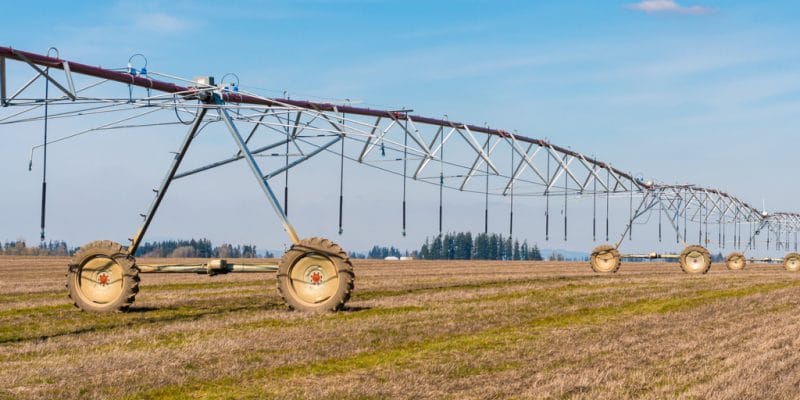Following the presentation of the Resilience and Sustainability of Irrigation Water (REDI) project in January 2022, the government of Morocco is announcing a pledge of $180 million in funding from the World Bank. The loan will be validated by the end of March 2022.
Morocco will benefit from new funding to strengthen water management in the agricultural sector. The World Bank plans to approve a $180 million loan to the Kingdom of Morocco before the end of March 2022. The funds are intended for the implementation of the Resilience and Sustainability of Irrigation Water (REDI) project. Presented in January 2022, the project aims to strengthen irrigation and drainage services, and improve access to advisory services and irrigation technologies in the regions of Tadla, Casablanca-Settat and Souss-Massa.
According to the United Nations (UN), Morocco is already considered to be under water stress with only 500 m3 of fresh water per capita per year, compared to 2,500 m3 in 1960, and the situation is expected to worsen. Thus, the Moroccan Ministry of Agriculture, Maritime Fisheries, Rural Development and Water and Forests, which will implement the project, plans to strengthen water governance in the project’s beneficiary regions with World Bank funding.
Irrigation in a context of water stress
Within this framework, Redi will support the creation of a pilot platform for tradable water allocation that will cover 98,000 hectares belonging to 20,000 farmers in the Tadla perimeter, a region located in central Morocco. It will support the implementation of the Chtouka groundwater contract in the Casablanca-Settat region to improve sustainable groundwater management, including the establishment of a commission of key stakeholders and the recruitment of a private operator to monitor and control groundwater withdrawals by farmers.
To strengthen water governance, the project also plans to design, develop and implement digital water management and Agri-informatics tools, including two observatories for monitoring and evaluating the impacts of modernization at the plot and off-plot levels, one at the Tadla perimeter and the other at the Office régional de mise en valeur agricole (ORMVA) in Morocco.
Read also –
The second component of the irrigation project is dedicated to the construction and modernization of irrigation systems. In the Talda region, the Redi project will build new pressurized irrigation networks to replace the existing open ones. A water conveyance canal in the Talda area will also be upgraded. In Chtouka, the Redi project will allow the installation of water meters on 9,000 boreholes for better management of the water table.
In the Souss-Massa region, the Moroccan government plans to renovate the main pumping station (SP1), rehabilitate the main canal, renovate the distribution networks and install irrigation hydrants in areas not yet equipped. The government hopes to improve the irrigation of a total area of over 18,000 hectares. The third component of the Irrigation Water Resilience and Sustainability Project aims to improve access to advisory services and plot-based or drip irrigation technologies.
Inès Magoum







